Let's look back at diplomatic achievements in 2023 with VietNamNet newspaper through an online discussion with the theme "Vietnam's diplomacy for peace , stability, cooperation and development".
Since the 13th National Party Congress, the world and domestic situation, in addition to opportunities and advantages, has also seen many complicated developments, with difficulties and challenges becoming more severe. In that context, under the leadership of the Party and the Government, foreign affairs have achieved comprehensive results in all channels of Party foreign affairs, State diplomacy and people-to-people diplomacy. The overall result is to more firmly consolidate a stable and peaceful environment for the country to develop sustainably as well as promote national soft power, increasingly enhancing Vietnam's position and prestige in the international arena. 2023 is a vibrant year for foreign affairs both bilaterally and multilaterally. Relations with many important partners have been raised to new heights, notably relations with countries such as China, the US, Japan and many other partners. Foreign affairs activities, especially high-level foreign affairs, have taken place vigorously across continents, at many important multilateral forums and mechanisms. Achievements in economic integration and foreign affairs not only contribute to expanding and tightening relations between Vietnam and other countries but also serve socio-economic development. Economic diplomacy continues to be promoted on the basis of thoroughly implementing the spirit of Directive 15 of the Secretariat, which is to take localities, businesses and people as the center of service. Economic diplomacy activities have made an important contribution to promoting economic growth and import and export in 2023. We invite you to review the diplomatic achievements in 2023 with Vietnamnet newspaper through an online discussion with the theme "Vietnam's diplomacy for peace, stability, cooperation and development". We would like to respectfully introduce the guests attending the discussion. Ambassador Pham Quang Vinh, former Deputy Minister of Foreign Affairs. Dr. Pham Sy Thanh, Director of the Center for China Economic and Strategic Studies. Ambassador Pham Quang Vinh, in your opinion, how has the world context in 2023 affected Vietnam's diplomatic activities in general? In 2023, although the world has emerged from the pandemic, it still faces many complex, unstable and unpredictable challenges. Great power competition continues to be very complicated, especially between leading powers such as China and the US; Conflicts have both lasted and flared up, such as in Ukraine or the Middle East; Great power competition is not only in the geopolitical field but also in the economic field, the fragmented world and the reorganization of the global order, and non-traditional security challenges such as climate change, the development of science and technology, including artificial intelligence, etc. have posed very new challenges to world governance. 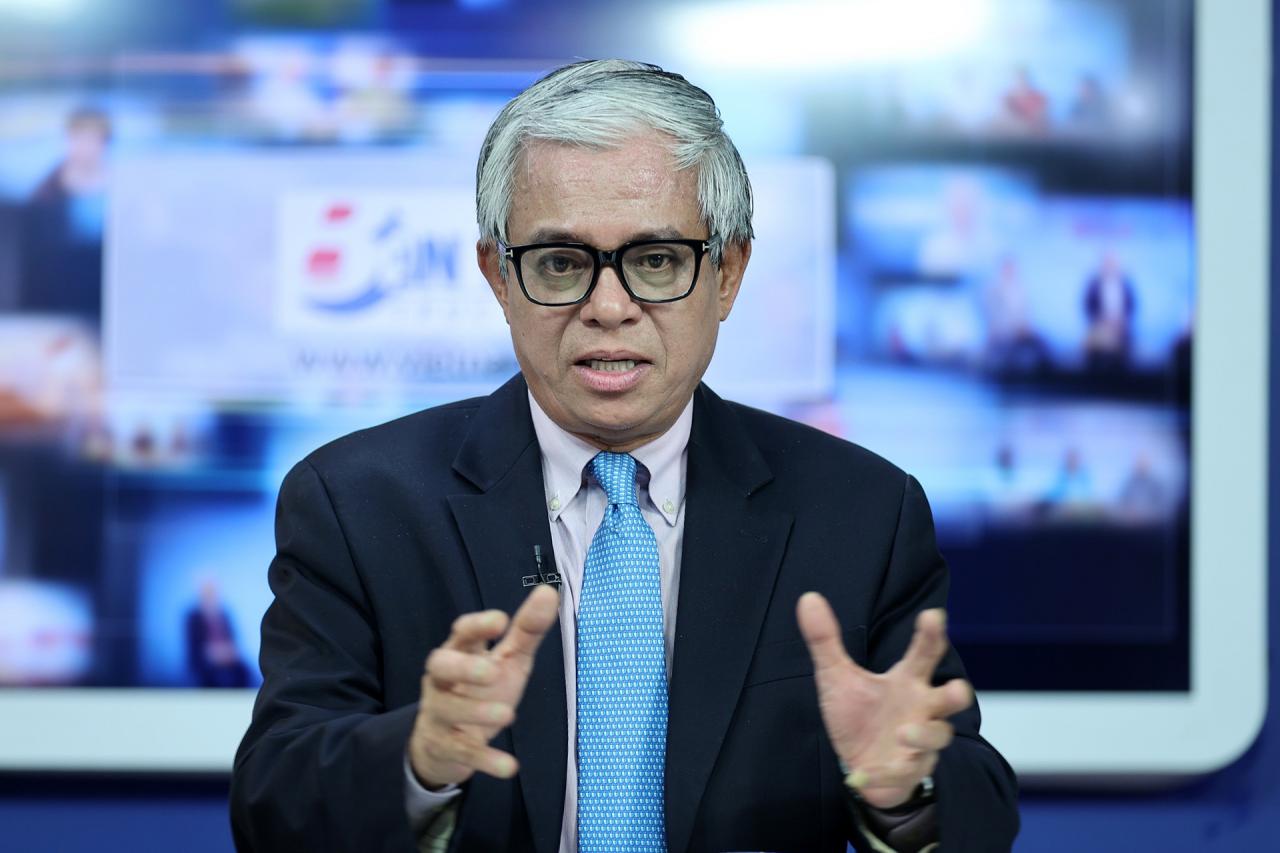
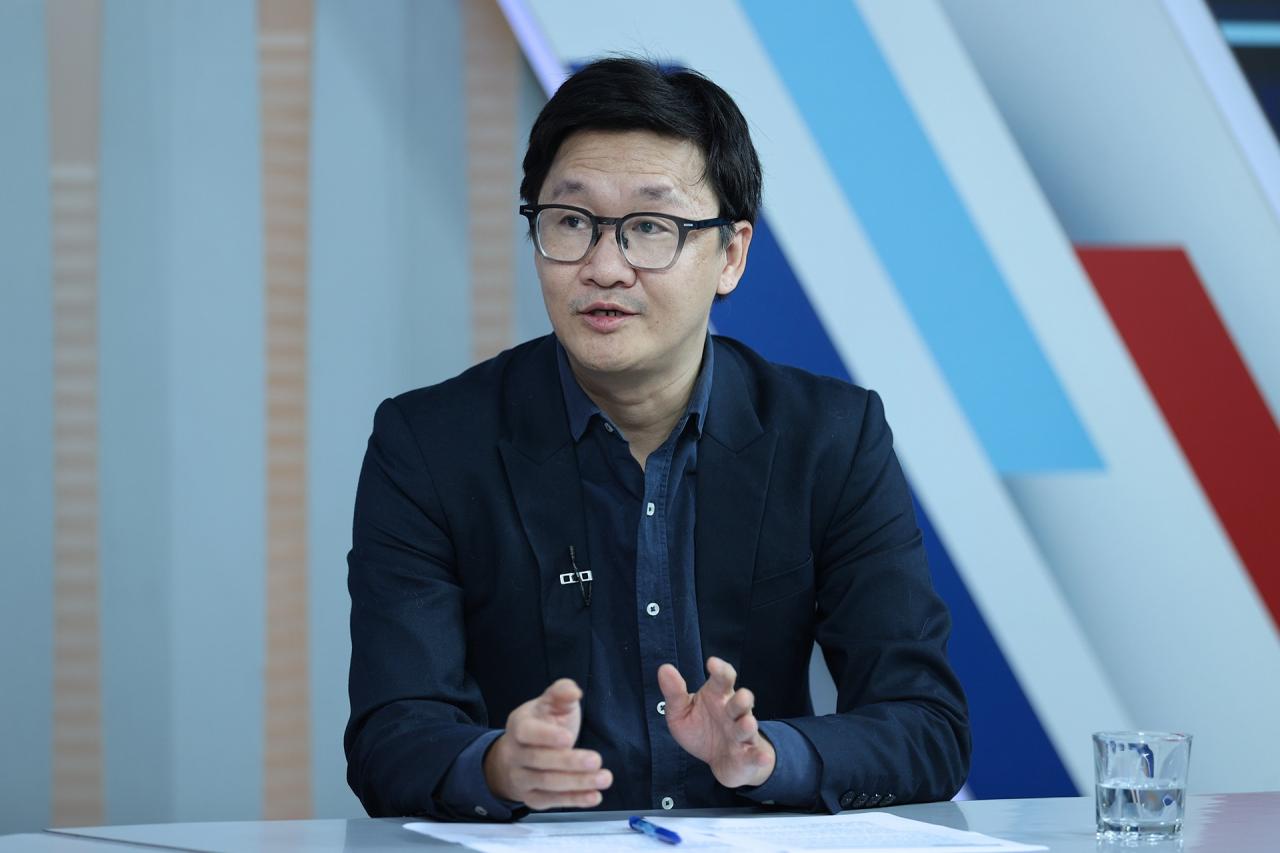

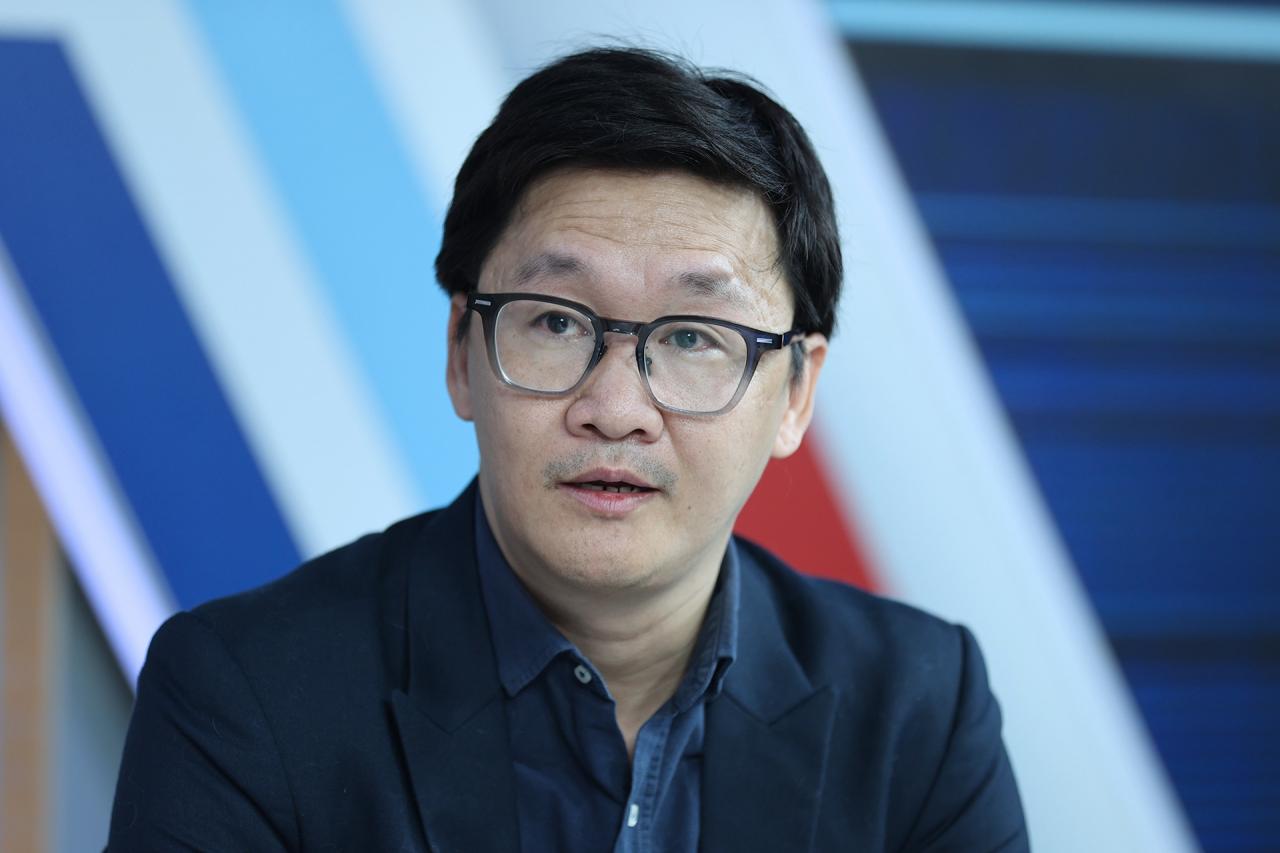 2024 will also be the biggest election year in human history with more than 4 billion people voting, many of which will impact regional and global economic trends. For economic development, all countries need peace and cooperation. But from an economic perspective, we see that in the current context, peace is fragile, and cooperation is loose or selective. This is a huge risk to global development.
2024 will also be the biggest election year in human history with more than 4 billion people voting, many of which will impact regional and global economic trends. For economic development, all countries need peace and cooperation. But from an economic perspective, we see that in the current context, peace is fragile, and cooperation is loose or selective. This is a huge risk to global development. 

Ambassador Pham Quang Vinh, former Deputy Minister of Foreign Affairs. (Photo: Le Anh Dung)
In this context, Vietnam's foreign affairs have risen very strongly. We have been carrying out a series of foreign affairs activities since the beginning of 2023, involving all partners, all continents, and in all fields, from bilateral, multilateral to political, economic, and investment cooperation. Obviously, 2023 is a challenging year, and Vietnam's foreign affairs, the country of Vietnam, has overcome those challenges, creating a year with many marks, even historical marks, in Vietnam's foreign relations with the world. How does Dr. Pham Sy Thanh share the overall picture of the world economy in 2023 and its impact on Vietnam's economic development? There are some prominent keywords such as "fragmentation" or "headwind" to visualize the dark sides of the economy last year. Besides, we also see many bright spots and opportunities such as: Many economies grow higher or recover better than forecast, creating support for global economic development and growth. The scientific and technological revolution is being promoted, especially in new fields such as artificial intelligence. The biggest concern of previous years and leading to the complete disruption of macroeconomic regulation policies of all economies in the world, the fear of inflation, has also been pushed back. The problem of employment and unemployment has also improved significantly in major economies, helping the world economy to be more resilient. Besides, there are also many "headwinds" that still threaten the recovery momentum, even creating new risks for 2024. For example, the US is the sustainability of consumption, Europe is the problem of inflation and rapidly increasing wages, and China is real estate, the asset market, and youth unemployment... These things create both positive impacts as well as great challenges and new challenges for the Vietnamese economy. 2023 is truly a vibrant year of foreign affairs with many activities on multilateral and bilateral levels. How does Ambassador Pham Quang Vinh assess Vietnam's position and prestige through these foreign affairs activities? Coming out of the pandemic, in 2023 we will carry out a series of foreign affairs activities, helping Vietnam's relations with other countries not only to resume but also to be strengthened and raised. We have nearly 50 delegations coming in and out. These high-level visits are accompanied by the consolidation of political trust, the promotion of cooperation and many accompanying agreements. We give high priority to diplomatic efforts in service of the economy. From the perspective of foreign politics, the agreements reached with countries all include economic, trade and investment issues. Maintaining nearly 700 billion in total import and export turnover of goods is a great effort of Vietnam in the context of the world economic situation and key markets still having many difficulties. We strengthen and enhance relations with key partners to create a favorable strategic environment in terms of foreign affairs, thereby contributing to peace, security and development of the country. Vietnam has caught up with new development trends in both economy and technology. In every visit, we highlight the story of green transformation, digital transformation and development based on innovation. Finally, we have actively and responsibly participated in contributing to common world issues on both bilateral and multilateral levels. Thus, looking back at 2023 as a whole, Vietnam's foreign affairs have made historic marks in relations with other countries, especially creating a new strategic environment and a new strategic position favorable for Vietnam in terms of both security and development.
Dr. Pham Sy Thanh, Director of the China Center for Economic and Strategic Studies. (Photo: Le Anh Dung)
So, what does Dr. Pham Sy Thanh think about economic diplomacy? Previously, with the first comprehensive strategic partners, it might take us 8-10 years to go from having a second partner to a third partner. But in 2023 alone, in just one year, Vietnam upgraded relations with two partners. Vietnam's six key partners all play very important roles in the world. We also concretized what we discussed in previous years. Last year, Vietnam signed an additional free trade agreement with Israel - a partner of strategic significance, pivotal in the technologies that we want to deploy in the future such as semiconductor technology. Vietnam is also trying to promote negotiations to be able to sign other free trade agreements. In 2023, we will also witness the signing of about 100 cooperation documents and local-level cooperation agreements, about 70 ministerial and sectoral documents on economic cooperation between Vietnam and its partners. At the business level, there are probably many more agreements and they are frequent. Last year, we made great efforts and were very proactive to proactively overcome the headwinds as well as the fragmentation of the global economy. Last year, many new trends in investment, trade, innovation and especially the potential of the semiconductor industry emerged. What is Dr. Pham Sy Thanh's opinion? After the pandemic, new trends in investment, trade and technology have changed a lot. Especially when geostrategic competition between major powers becomes increasingly evident, new global instabilities are increasing, this change is even faster. In the field of investment, there are 3 new trends. That is “Friendshoring” – meaning that investors will look for countries not based on purely economic or local political criteria as before. They will be interested in the factor of which country they want or will invest in belongs to the host country’s portfolio. “Friendshoring” means that companies want to invest in countries with foreign policies or relatively close relations or at least not opposing or not going against the political approach of the host country. The second is “Nearshoring” which means the tendency to organize production closer to the place of consumption, to reduce costs or meet demand more flexibly. Next is “Onshoring”, this is a very important trend that has a great influence on developing countries – that is, bringing production activities and supply chains back to the home country of the corporation or company. In terms of trade, there are 3 very clear trends. One is the trend of globalization, the world economic connection is changing towards increasing flexibility in trade cooperation, in groups, in blocs, more trade protection. Two is the trend of greening associated with climate change, environmental protection, ensuring food security, energy security. Three is the digital economy, digital transformation will become a support tool, enhancing resilience, limiting supply chain disruption, increasing performance, quality and efficiency. This is also a new, more inclusive and sustainable growth driver. Regarding semiconductor technology, semiconductors are currently the technology of all technologies. The development demand of this technology industry is still increasing as more and more industries need chips. In 2023, according to estimates of the US Semiconductor Association, each citizen on earth is using about 160 chips. In addition to semiconductors, we would also like to mention other very important technologies such as artificial intelligence, data-related technology, biotechnology, etc., which are changing every day, every hour, and greatly supporting the development of each individual, community and country. Over the past year, many world technology giants have come to Vietnam and raised the issue of investment. Is this a sign that the economic diplomacy strategy has shifted to higher quality, towards high-tech and new technology fields? Dr. Pham Sy Thanh: The Resolution of the Politburo in 2019 on improving the quality and efficiency of foreign investment cooperation clearly stated the spirit of shifting from "attraction" to "cooperation". That means we approach proactively. We do not just wait for businesses or capital and technology flows to come, but proactively seek capital and technology that are suitable for medium-term and long-term development goals. However, in general, capital flows are still looking at Vietnam as a place to provide cheap labor, resources and resources rather than as partners with whom they can cooperate and have long-term impact. The big weakness that we still have to overcome is that when attracting FDI capital, we have not really taken advantage of the benefits of capital and technology from outside. The connection between domestic enterprises and FDI enterprises is still very loose. In the supply chain and value chain, the number and position of participating Vietnamese enterprises are not many. We can learn more lessons about attracting and transferring technology that the economies of the Northeast Asia region have been very successful in. That is, each stage will have specific, clear FDI attraction policies and corresponding domestic industry development policies; creating a system of indigenous enterprises accessing policies to take advantage of huge incentives and support. Ambassador Pham Quang Vinh: The world today attaches great importance to economic security in the context of the pandemic causing disruption of supply chains, leading to the need to diversify supply chains; fierce competition between major countries requires finding reliable shelters... Therefore, economic security is a trend that continues to develop in parallel with diversification. Vietnam has great appeal when businesses of leading Vietnamese partners (including leading technology partners) are here. Among the high-level delegations visiting Vietnam, through exchanges and cooperation, 2023 seems to mark the willingness of world businesses to come to do business and transfer technology to Vietnam. This is a new feature, when in the past they brought us into their supply chains, production chains but in a very small part, now we can accompany them to produce and develop in this supply chain.
Online discussion with the theme "Vietnamese diplomacy for peace, stability, cooperation and development". (Photo: Le Anh Dung)
According to Ambassador Pham Quang Vinh, what advantages and challenges does the world in 2024 pose to Vietnam's foreign affairs activities? The world in 2024 is generally still in a challenging, unstable and unpredictable period. Competition between major powers continues to increase despite efforts by all parties to control disagreements and avoid the risk of conflict, but it is clear that the main direction is still fierce competition in terms of strategy. In this story of strategic competition, there are not only political and security issues but also economic, trade, technology, etc. The US election develops in different situations, creating different scenarios in relations with major countries and affecting the world's politics, economy and trade in general. The situation of tension, conflict and political security crises in the world continues to develop in a complicated manner and has not yet seen an end. But clearly, when looking at major power competition, political crisis, security crisis... all countries still want peace and cooperation for development. May I ask Dr. Pham Sy Thanh, what opportunities and difficulties will 2024 pose for Vietnam's economic activities? In 2023, we escaped a global recession and in 2024, the common view that everyone gives is the keyword "trying to make a soft landing" under the condition of controlling risks. Inflation is controlled, the ability of central banks to lower interest rates helps improve financial conditions for economies and businesses. However, the risks to the global economy are still quite large when inflation is not fully controlled; Tensions in the Red Sea could cause supply chain costs to increase and oil prices to escalate again, creating inflationary pressure on major economies. 2024 will also be the biggest election year in human history with more than 4 billion people voting, many of which will impact regional and global economic trends. For economic development, all countries need peace and cooperation. But from an economic perspective, we see that in the current context, peace is fragile, and cooperation is loose or selective. This is a huge risk to global development.
2024 will also be the biggest election year in human history with more than 4 billion people voting, many of which will impact regional and global economic trends. For economic development, all countries need peace and cooperation. But from an economic perspective, we see that in the current context, peace is fragile, and cooperation is loose or selective. This is a huge risk to global development. 
Ambassador Pham Quang Vinh, (Photo: Le Anh Dung)
According to Ambassador Pham Quang Vinh, in 2024, how should we promote the pioneering role of foreign affairs in attracting external resources to serve the country's socio-economic development? Foreign affairs need to grasp the development focuses and development requirements of the country. In fact, 2023 has created a huge turning point for cooperation opportunities with the world. In 2023, we have reached many agreements on economics, trade, investment and especially technology. But that is only the foundation of political agreements. The important task of foreign affairs is how to connect foreign partners domestically; connect government to government to continue implementation plans in terms of policy and specific implementation; support businesses to connect with each other. The greatest significance of foreign affairs is how to create an environment early, from afar, favorable for both peace, security and development. In 2024, there are two very important things. That is to consolidate and continue to strengthen Vietnam's new strategic environment and strategic position. Second is to implement agreements, from political commitments to create favorable conditions for cooperation and business. Dr. Pham Sy Thanh: I think that the core of pioneering means not only analyzing the situation, reacting to the situation but also forecasting the situation. How economic diplomacy can further enhance its role in conveying Vietnam as one of the competitive partners in the region is very important. The third point we think is choosing the right partner. Finally, foreign affairs and economic diplomacy are not the sole responsibility of the Ministry of Foreign Affairs. How can all ministries, departments and sectors coordinate with each other, have a channel for exchanging and connecting information to act together. This will create new strength for economic diplomacy in the effort to achieve the development goals that the country expects. What do we need to do to increase the effectiveness of coordination in implementing economic diplomacy, helping to expand export markets and build Vietnamese product brands? Regarding economic diplomacy, there are three very important components: people, localities and businesses. Personally, I think that we need to prioritize businesses, because businesses are the ones who carry out production as well as import and export. In activities for businesses, promotion activities play a very important role, but how can we promote connections? Personally, I want to emphasize the need to carry out two factors in parallel: promoting forecasting and promoting implementation. We need to frankly acknowledge that the implementation stage is still slower than forecasting and connection. The world is undergoing many changes and transformations, creating new development models. According to Dr. Pham Sy Thanh, what does Vietnam need to do to be able to approach, participate, and even play a leading and shaping role in these new models? First, we really need a legal framework or legal corridor in the country. The second is infrastructure preparation and the third is the quality of human resources. Up to now, in terms of state diplomacy, Vietnam has expanded and deepened relations with 193 countries, including 3 special relations, 6 comprehensive strategic partners, 12 strategic partners and 12 comprehensive partners; becoming an active and responsible member of most regional and international organizations and forums. In addition, Vietnamese organizations and people's organizations have had cooperative and friendly relations with more than 1,200 foreign organizations and partners. On the multilateral level, Vietnam has made many effective contributions and successfully assumed key roles in international organizations and forums, especially the United Nations and ASEAN. Proactively put forward many creative ideas in most important international organizations and forums, especially ASEAN, ASEM, APEC, the United Nations, the G7, G20 groups, etc. "A dynamically developing, innovative, internationally integrated Vietnam and joining hands with the world to solve global issues", that is the outstanding message from important foreign affairs activities over the past year. Thank you two guests for attending today's discussion! Greetings and see you again!Vietnamnet.vn
Source




![[Photo] Inside the Imperial Academy relic of Hue Citadel before the hundred billion dollar restoration](https://vphoto.vietnam.vn/thumb/1200x675/vietnam/resource/IMAGE/2025/9/18/77fd186af68341b1a8bffd072fa896a6)
![[Photo] National Assembly Chairman Tran Thanh Man begins attending AIPA-46 activities](https://vphoto.vietnam.vn/thumb/1200x675/vietnam/resource/IMAGE/2025/9/18/73487ff8ed57412eab9211273946c14d)




















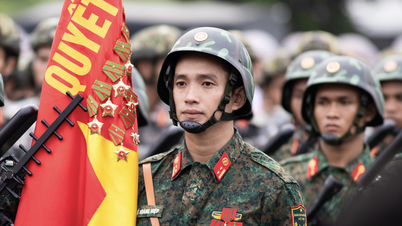
















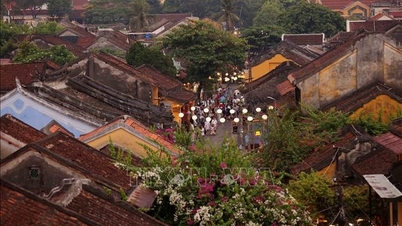




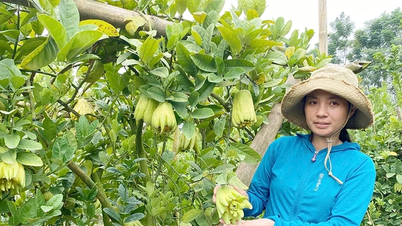



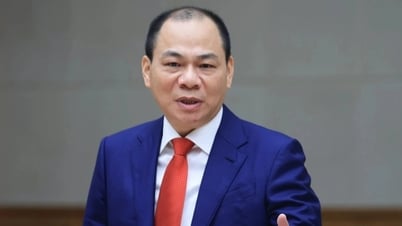








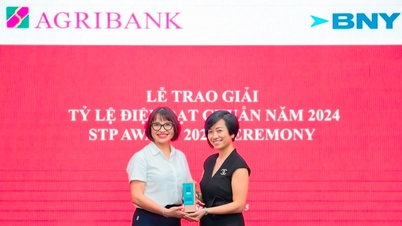





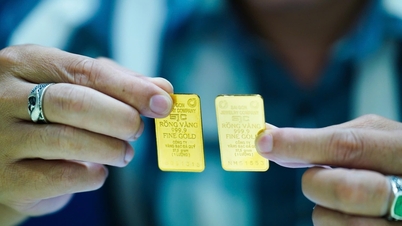


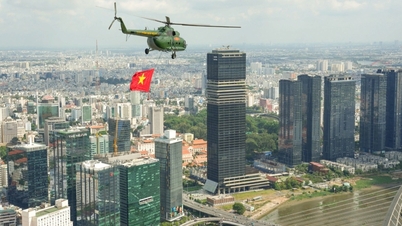
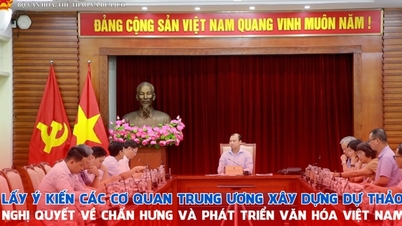


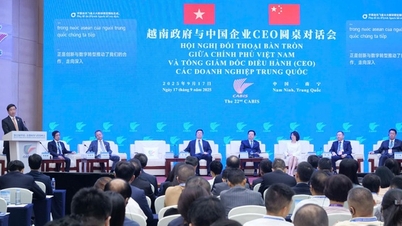

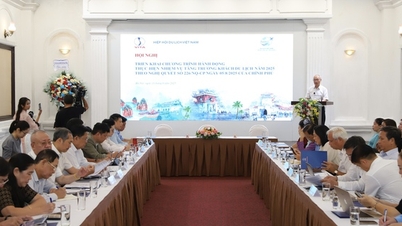



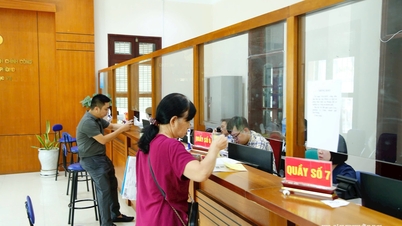


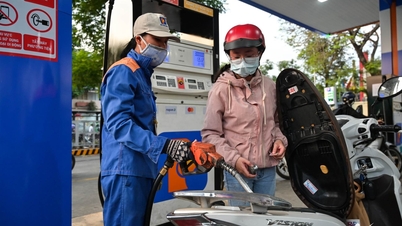






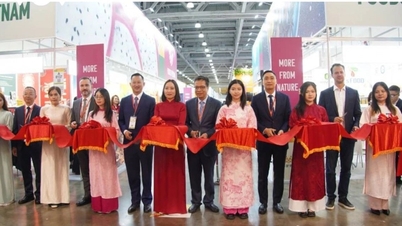











Comment (0)